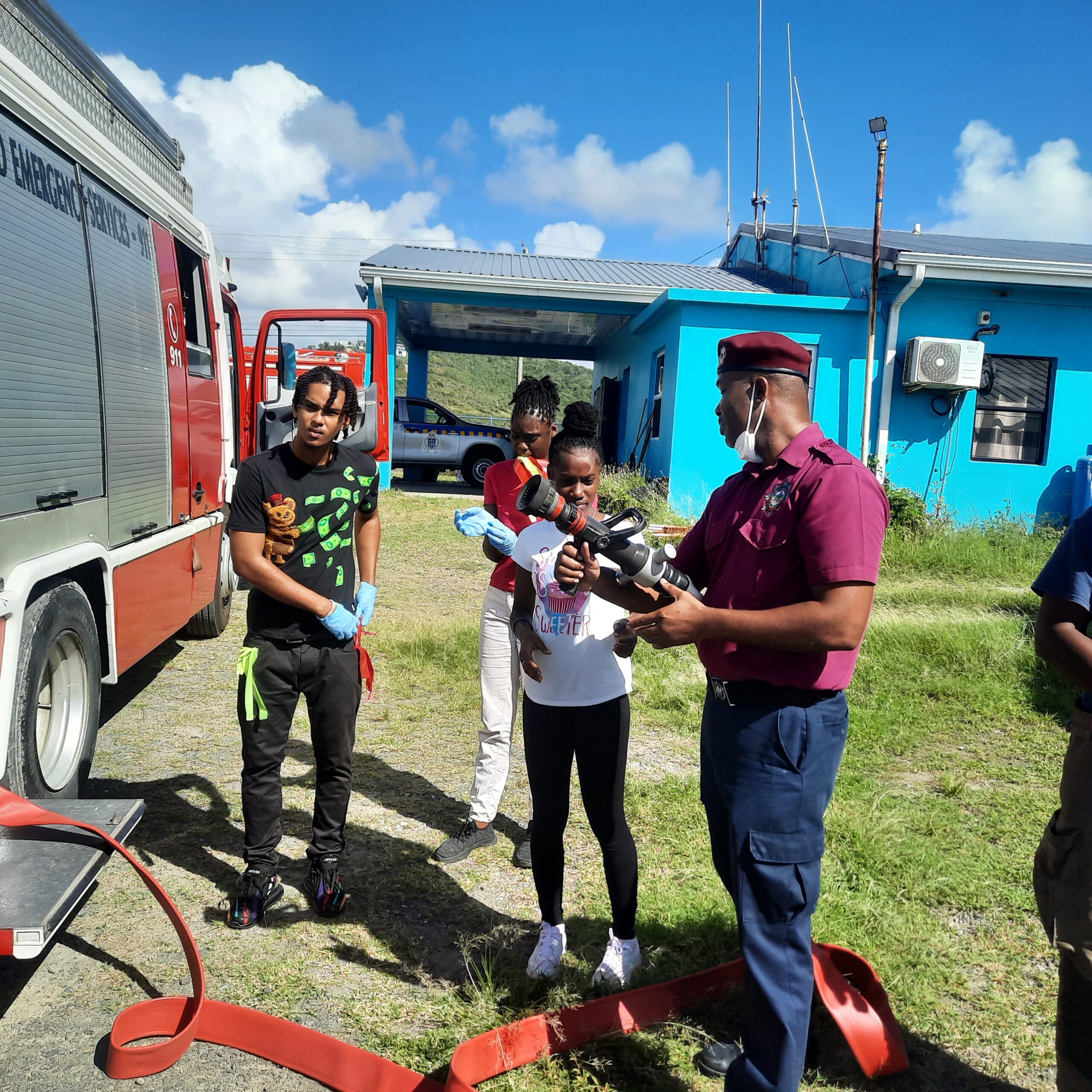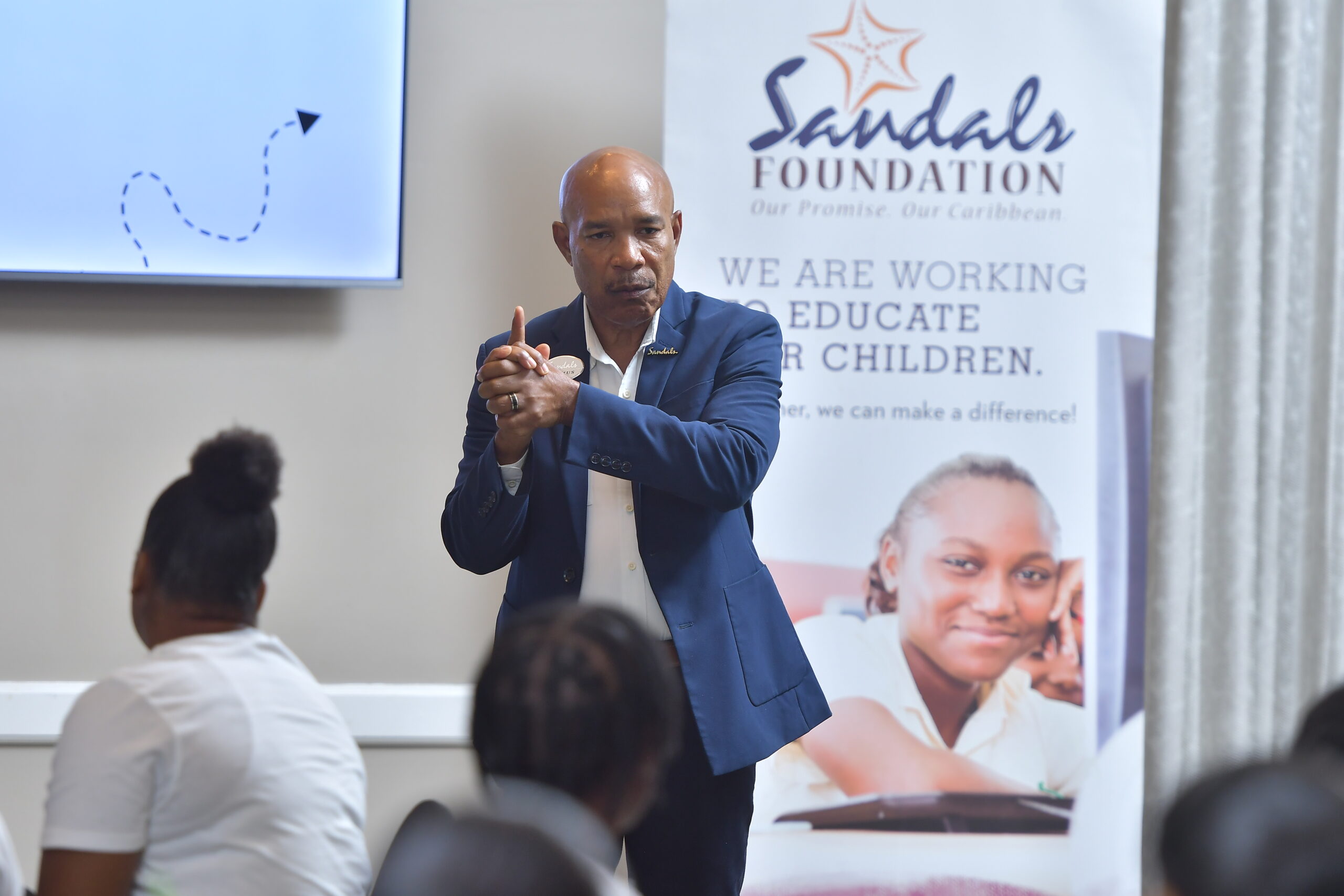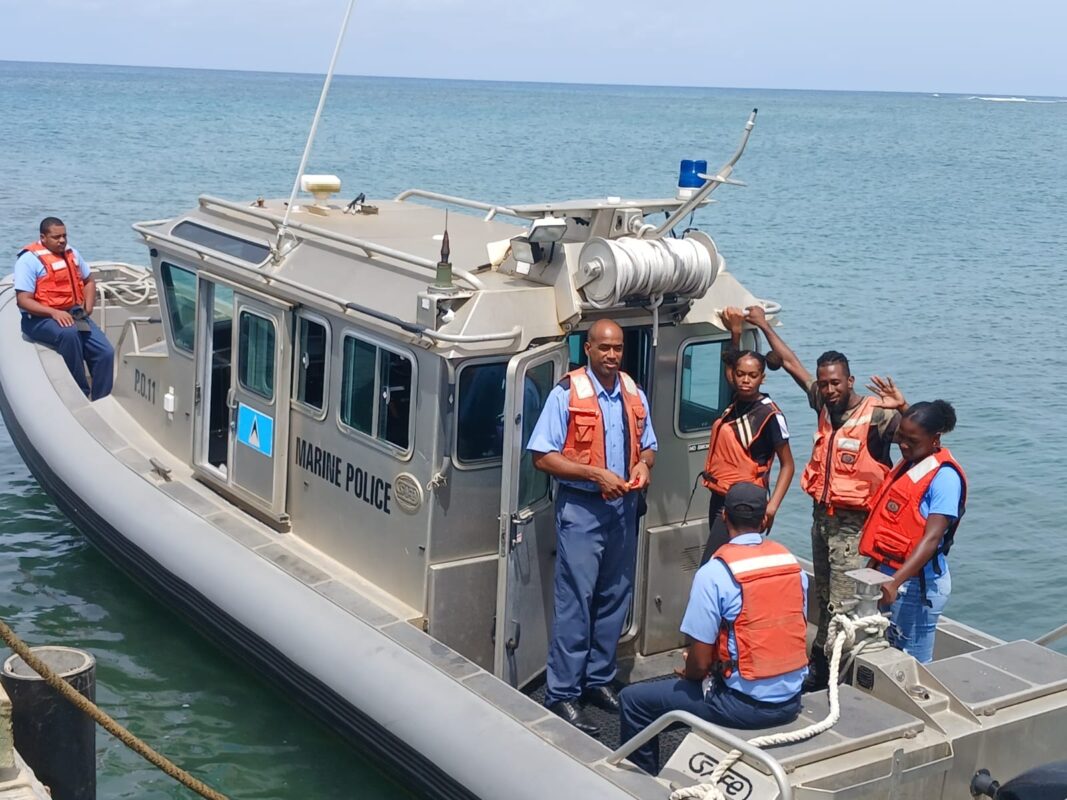As we conclude the first two cohorts of the Team programme in Saint Lucia, we are proud to share the progress and promise from our pilot report. The programme is a collaboration between King’s Trust International (KTI) and the Royal Saint Lucia Police Force (RSLPF) forming part of our commitment to support youth ecosystems across the Caribbean through skills development, community engagements and long-term partnerships.
The Team programme Saint Lucia launched in 2023 in Vieux Fort—a community heavily affected by youth unemployment and crime with concerning rising youth crime rates. The Team programme sought to equip unattached and at-risk young people aged 17–30 with the tools they need to thrive. Over the course of the pilot we engaged 25 young people, 48% of whom were young women, and supported them into positive outcomes such as employment, further education and entrepreneurship.
This pilot builds on the successful delivery of the Team programme in Barbados, where it has been running since 2016 in partnership with the Barbados Police Service. Over the years, the programme has proven effective in addressing similar challenges—helping young people develop personal and social skills, improve their confidence and find pathways into work or education. The success in Barbados provided a tested model, guidelines that shaped the setup and delivery of the Saint Lucia programme. With these insights, the Team pilot in Vieux Fort became an opportunity to adapt a proven approach to a new national context and strengthen regional cooperation around youth development.
Tackling Youth Unemployment and Violence
Since COVID, Saint Lucia has seen a steady rise in youth unemployment and crime, particularly in underserved communities like Vieux Fort. The pandemic’s impact on the country’s key industries exacerbated already high youth unemployment rates, leaving many young people without viable opportunities for education, employment or personal development. Saint Lucia faces significant challenges: youth unemployment, for those aged 15-24, reached 51.6% at the height of the pandemic and remained above 28% in 2024—more than double the global average. The Team programme was designed to offer young people an alternative path through confidence-building, vocational skills, and direct support from trained police officers.
Through a series of structured activities, one-to-one coaching, group challenges, and community projects, participants improved their leadership, teamwork and communication skills. The results were powerful:
- 95% of respondents were employed within six months of completing the programme
- 100% improved at least one core skill, from managing emotions to setting and achieving goals
- 83% said the programme helped them overcome challenges or achieve their goals
As one participant shared: “I am now so motivated to own and operate my small business and I think the information and skills I learned will help me a lot.”

Building Capacity for Long-Term Change
Equally important was the development of RSLPF’s Community Relations Branch (CRB) Southern Division, which played a central role in delivery. Officers received training in safeguarding, youth facilitation, programme management, and impact measurement, supported by resources developed by KTI and knowledge exchanges with Barbados and UK counterparts.
Training was well received, with 100% of participants rating it “Good” or “Very Good”. Officers reported using new tools not only in the programme but in wider community outreach efforts, creating a ripple effect beyond the original participants.
As one RSLPF team member reflected: “We would prefer preventing [crime] than having to react… King’s Trust International’s programme is one avenue towards us achieving that objective of prevention.”
Exploring the Potential for Youth-Centered Policing
The programme also offered insight into how programmes like Team could support stronger relationships between law enforcement and the communities they serve. One RSLPF representative noted a perceived shift in how the Community Relations Branch is viewed in Vieux Fort, suggesting early signs of increased public trust.
Whilst long-term impacts are still unclear, engaging young people in positive, supportive ways can help foster mutual understanding—a foundation that could contribute to more inclusive and community-centred approaches to safety over time.

Challenges and Opportunities
The pilot also revealed areas for growth. One aspect highlighted in the report includes the strain on RSLPF staff as a result of balancing police duties with programme delivery, furthermore, operational gaps such as transport and access to facilities presented barriers. Looking ahead, dedicated resources, succession planning, and deeper employer partnerships will be vital to ensure long-term sustainability.
Some of our recommendations include:
- Strengthening employer engagement in high-growth sectors like sustainability and agriculture
- Increasing operational support and dedicated personnel for programme delivery
- Expanding local ownership and funding partnerships to scale the model
- Measuring the programme’s contribution to crime reduction and public trust
Looking Forward
The Team programme pilot in Saint Lucia highlights what’s possible when communities, governments and young people come together. It offers a replicable model for tackling youth unemployment and violence—not just through training, but through trust.
As part of our 10-year vision, King’s Trust International is committed to building strong youth ecosystems throughout the Caribbean. This pilot has laid the groundwork for transformative change. With continued collaboration, we believe the Team programme can be a cornerstone of that future—not only in Saint Lucia, but beyond.
We also extend our sincere thanks to the amazing employer partners taking part in the programme and our funders Kestrel Liners, Sandals Foundation and The Maria Holder Memorial Trust for making this work possible.

